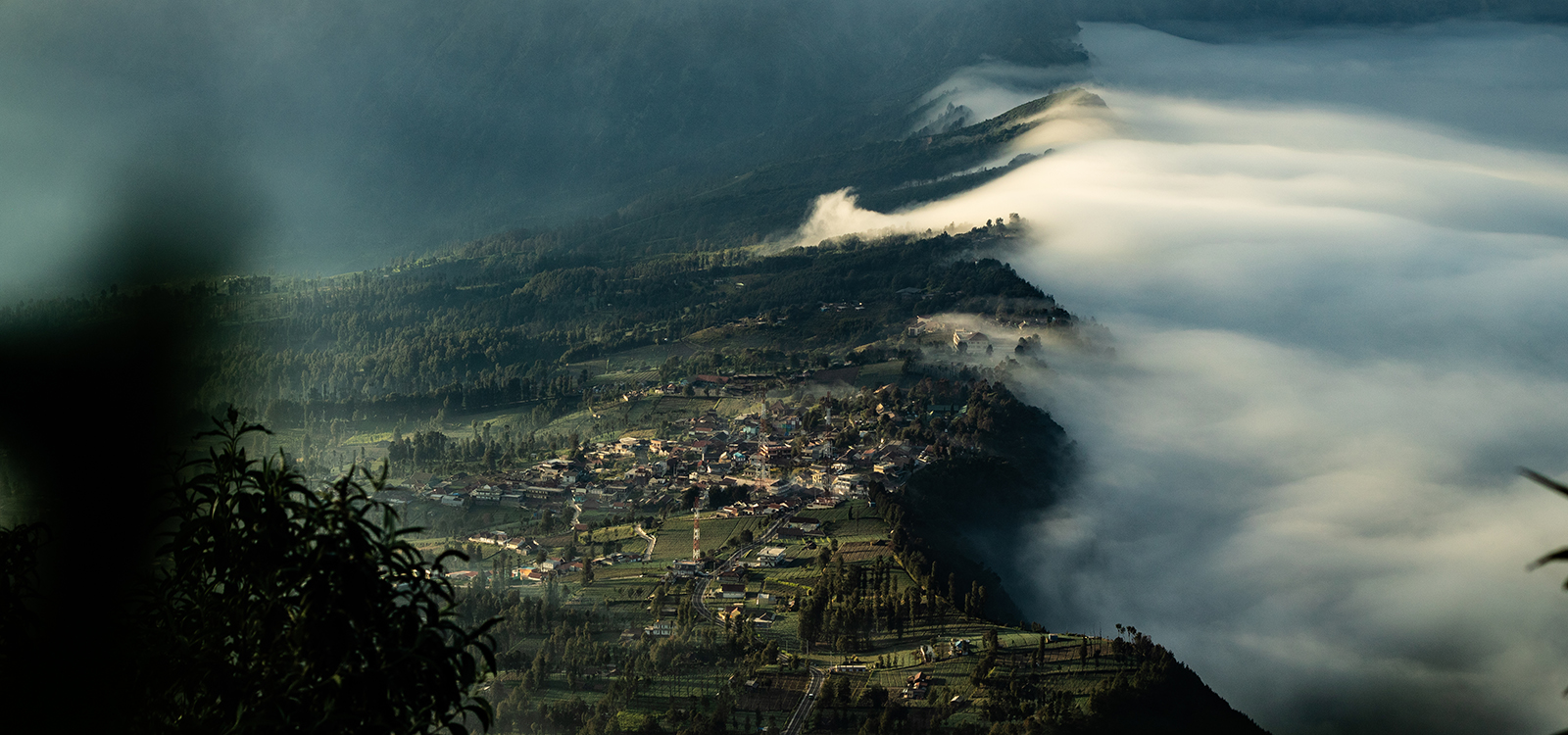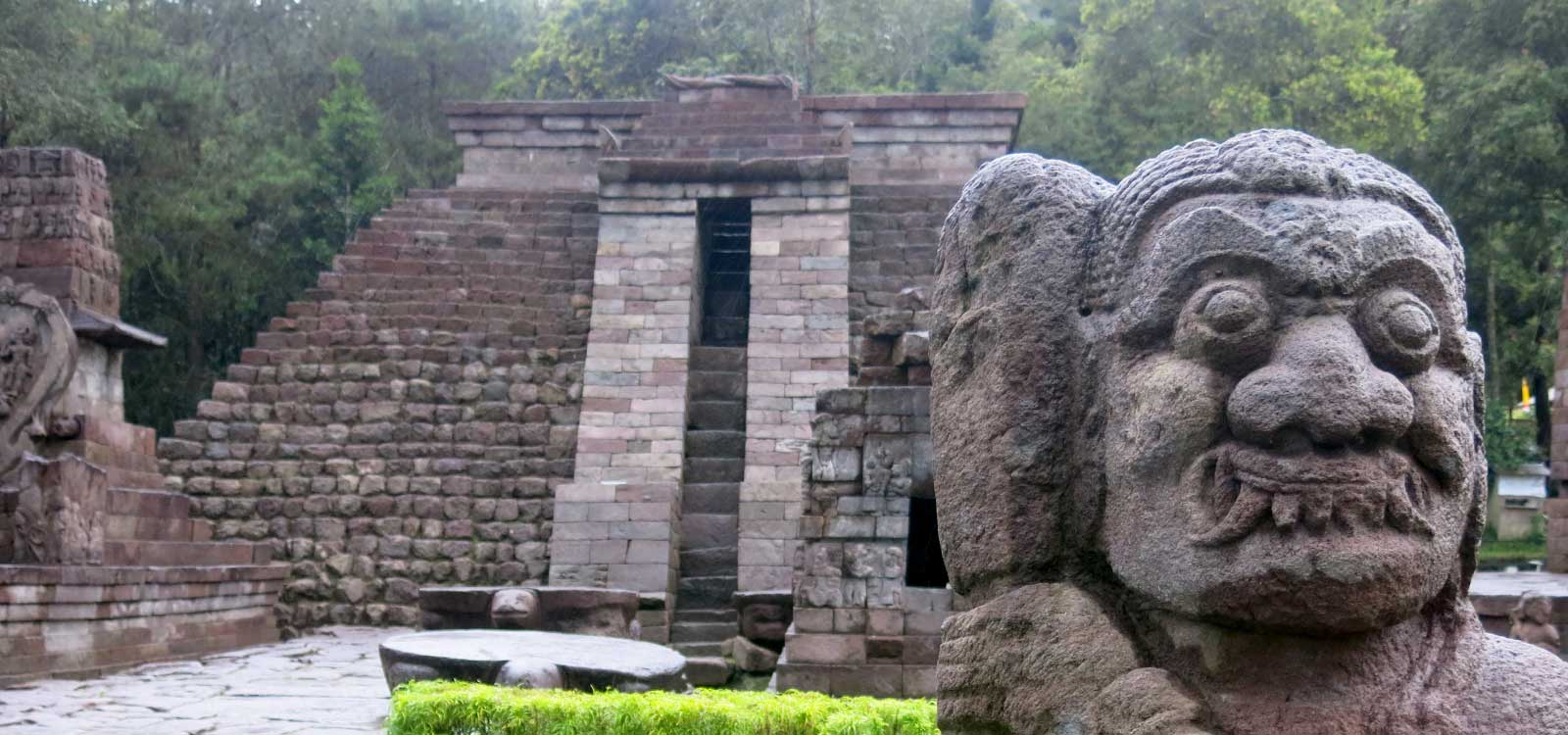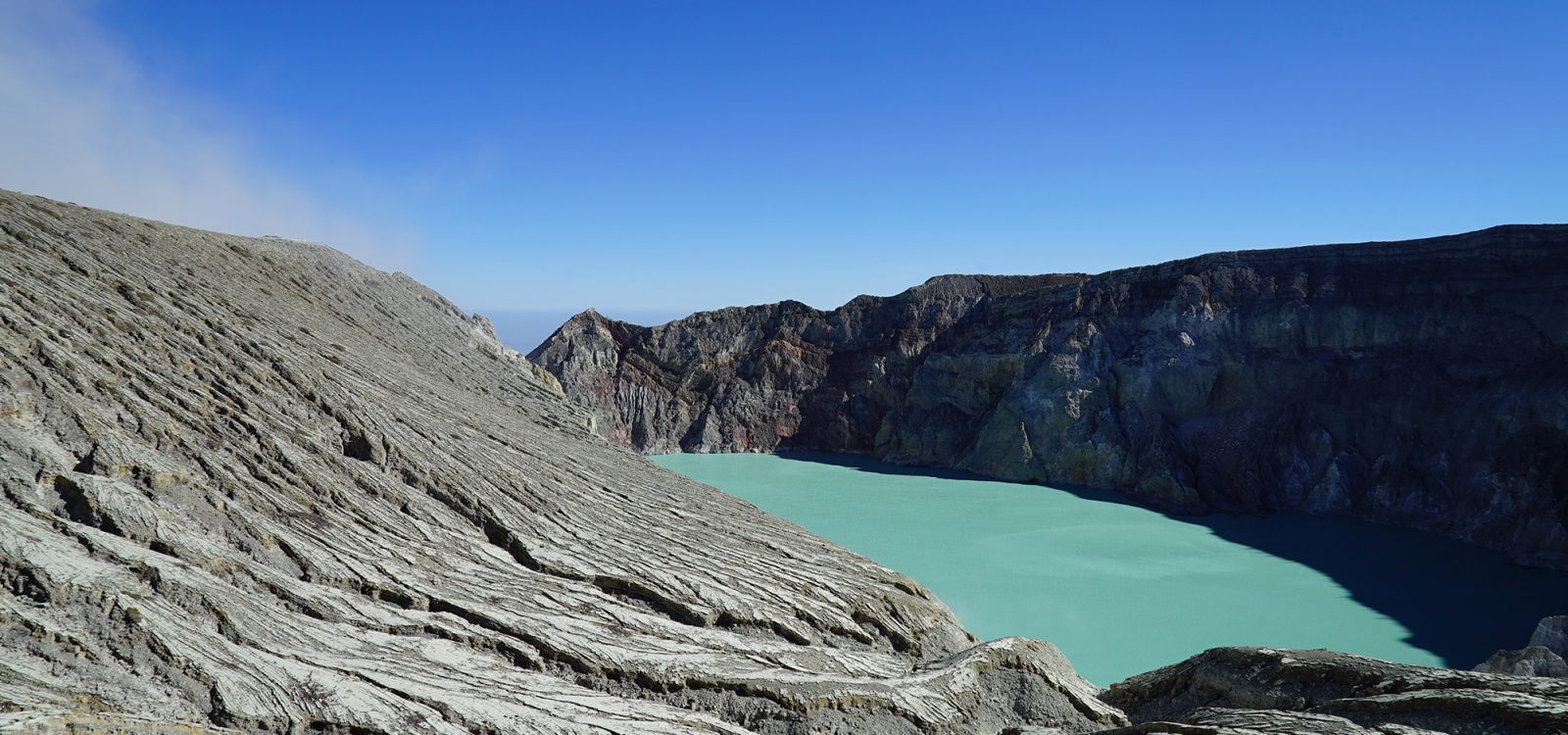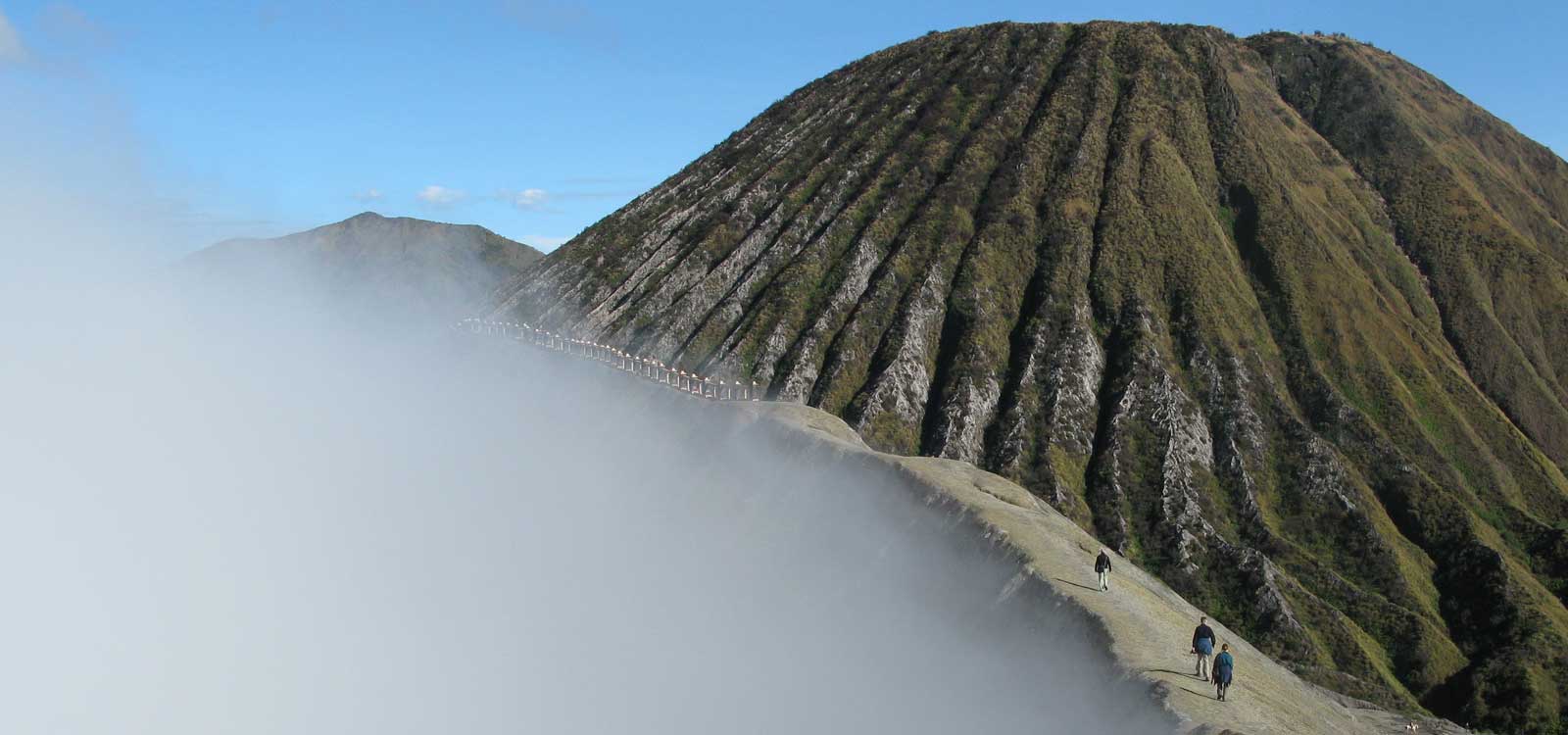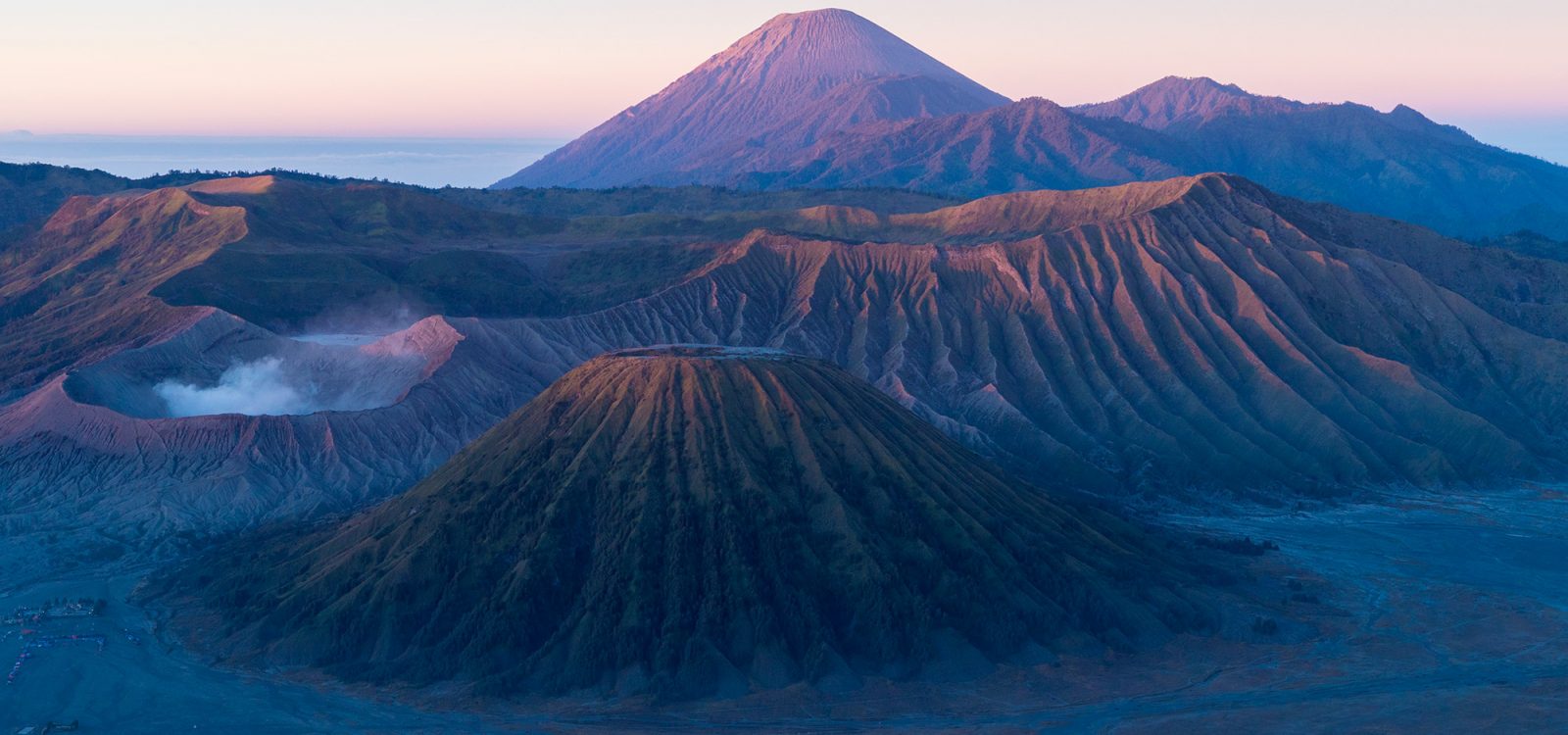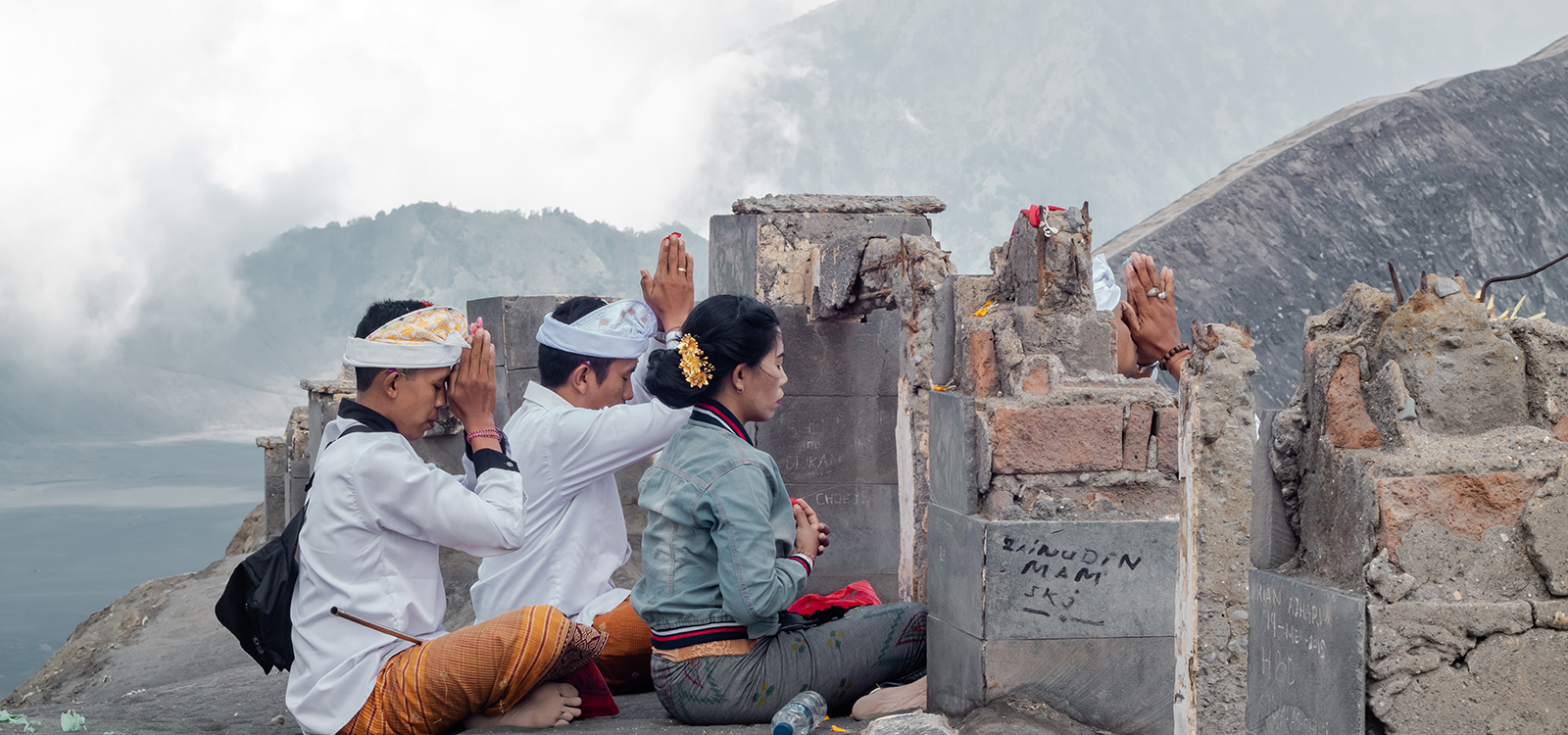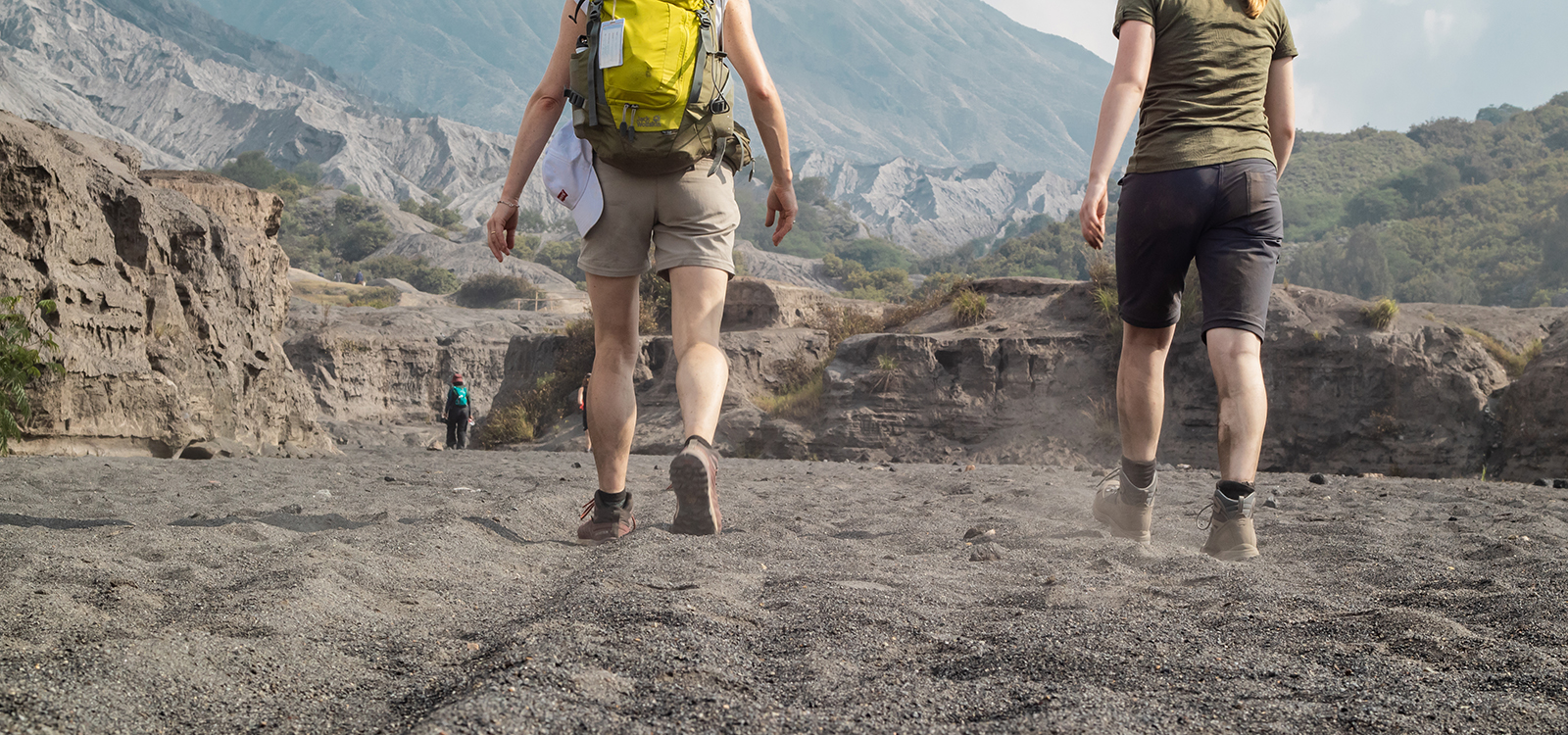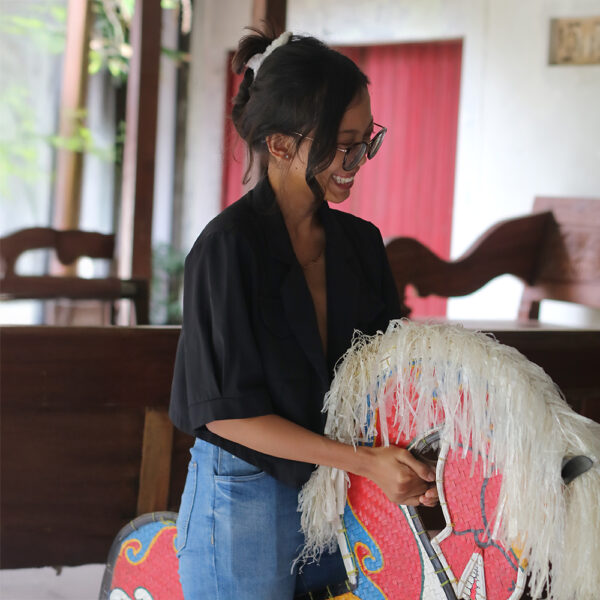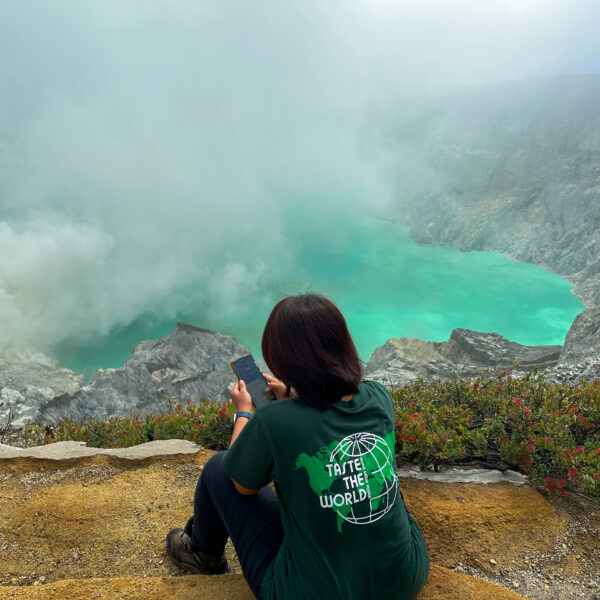An alternative route to Bali via Bromo & Kawah Ijen
With this overland we offer you an alternative for the long
drive to Bromo with a visit and hike to Sukuh – Ceto , the erotic temples.
Day 1: We drive for about 3 hours to a unique temple in stunning surroundings on the slope of Mt. Lawu. At Ceto temple we start our hike through vegetable fields, tea plantation and pine forest to yet another jewel, the Sukuh temple. (Medium tough hike of 3 to 4 hours). We spend the night in a simple yet clean hotel in Madiun, 2 hours drive further eastward.
Day 2: After breakfast, we start the 5 hour drive to Cemoro Lawang, the closest village to Bromo. We walk around the village and feel the vastness and emptiness of the caldera during sunset.
Day 3: Early morning, we walk or take a horse to admire the sunrise of Bromo. Late morning we continue to Kalisat, and stay in a small guesthouse in the coffee plantations.
Day 4: Morning hike (3 h up, 1,5 h down) to the Ijen crater, which has a stunning turquoise colored crater lake. It is mind blowing to see the very labor intensive sulfur mining with men carrying heavy baskets up and down the volcano. Early afternoon we take you to the harbour, to catch the ferry to Bali.
Book 2 days in advance.
